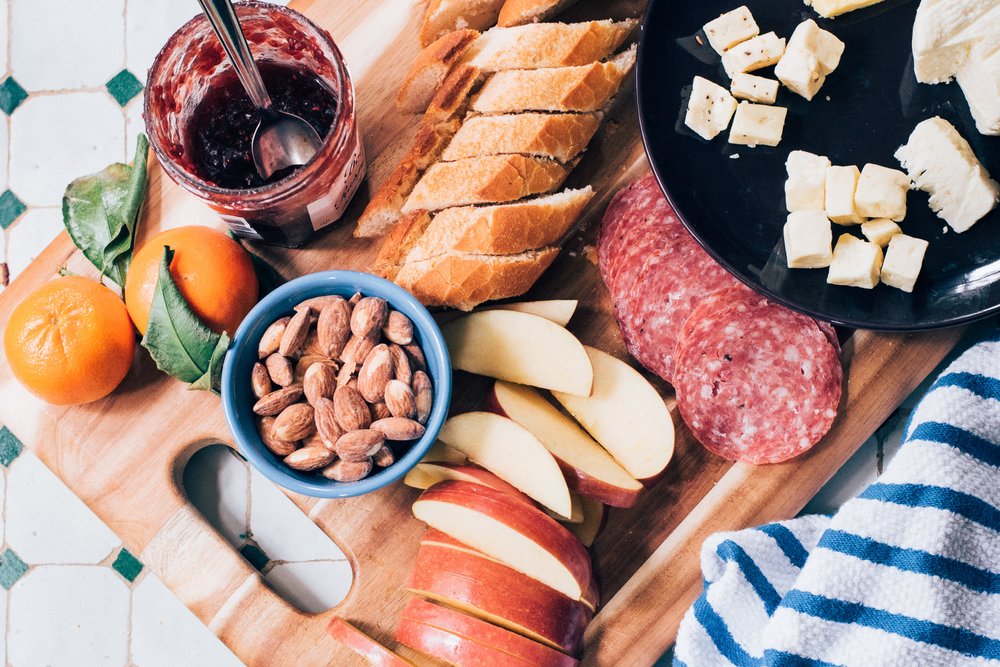Food. It holds a special place in our hearts (and our stomachs). It is a necessity and an indulgence. Food helps create culture and community, but it can quickly become an heart-consuming idol. How far will we go for the next “Insta-worthy” latte shot, the next “top ten” hot spot on the never-ending food bucket list? How much will we consume before “I’m full” turns into an “I-can barely-breathe” food coma?
To walk this line between satisfaction and excess, we must remember that food, like all gifts, can only be good if we actively choose to use it for good. That’s the sad reality with anything in our fallen world: What God intended as gifts to enrich our lives, we turn into idols in our sin by using them wrongly — either to overindulge or to feel satisfied without ever acknowledging the giver of the gift Himself.
To explore this dichotomic quality of food, we need to understand three key elements of food as a gift of God.
1. Food Is necessary
This is an easy concept for us to understand. People need food to survive. Maybe we don’t need that five-dollar latte or that Instagram-worthy avocado toast, but food, in its most basic form, is a need we all have in common.
2. Food Is pleasurable
This is another indisputable element. We know how much we enjoy that perfect bite of fillet mignon or spoonful of Haagen-Daz ice cream.
3. Finally, Food, Like All Things That Bring Us Satisfaction, Comes At A Cost
Someone needs to harvest the grain, butcher the animal, buy the ingredients, cook the dishes, and serve the meal. So it shouldn’t be a big surprise that food is the third biggest living expense (eating in and eating out) of American households, after housing and transportation. Out of those expenses, Americans spend about half of their food budget on eating out, about $3,365 a year.
The danger is when we overindulge in the gift of food and let it become an idol. In other words, we focus on the pleasure to the detriment to the cost. To say our society worships food would hardly be an understatement. Take a look at how many TV shows, YouTube channels, and Instagram feeds are centered around food. See how much of our money and time we spend on eating on a daily basis.
Jesus wasn’t exaggerating when He said “where your treasure is, there your heart will be also” (Matthew 6:21). He knew we put our money in what matters most to us. So how do our budgets add up? Do we spend more on morning coffee or weekly boba than on regular offerings? How easily will we fork over $30 on Korean barbecue but make up excuses when the missions donation envelopes come around?
We also spend so much time on food. As a foodie myself, I know just how much time we can easily spend on researching the best restaurants and new coffee shops to try or scrolling through photos of food. We’ll even spend hours in line for “the best chicken” or “the best dessert.”
By examining our time and money, we may see the cost of eating in our own lives. But it’s easy to forget that even the gift of food comes with a price. That’s the irony: Every gift comes at a price, just not for the person receiving it. If a gift has been given to you, by the very nature of it being a gift entails that someone else has paid the price for it already. And if this language is starting to sound familiar, it’s because it should: The gift of grace was free for us, but Jesus paid the price with his life.
And when Jesus died for our sins, He didn’t just remove the debt for the things we did wrong, but he also redeemed all of Creation, including food. Yes, on this earth we still live with the reality of sin. We must work the land to survive, as Adam did after the Fall. But God still provides for us with money to provide food. The upscale dishes by Michelin-star chefs, the animals we hunt and kill, the very fruits and vegetables growing from the Earth — we wouldn’t have any of it without God’s creativity, provision, and grace.
From Creation until now, God cares about what we eat, and he intended food as a gift beyond just a survival necessity. Since God gave Adam and Eve not just one fruit, but “every tree in the garden” (Genesis 2:16) to enjoy, then surely He intended food as a gift beyond a necessity for our survival. Since God gave the Israelites not only manna in the wilderness, but quail meat to fill their carnivorous post-fall appetites, surely He cares about the abundant nutrients and flavors we can enjoy on this earth to fully appreciate His creativity and grace.
We hope you will continue to join us during this series, in which we will explore how food, like all of God’s gifts, can be used for His glory, and the dangers that we encounter when we begin to turn it into an idol.
Still not convinced that food is important to God? Check out how many food images are used in the Bible to exemplify godly qualities when it’s used in the correct way:
- Genesis 1:29 (God provides food for mankind to flourish and multiply)
- Genesis 18:1-8 (Abraham’s hospitality through providing food)
- 1 Samuel 25:18 (Abigail’s wise use of food to appease David)
- Ecclesiastes 9:7 (Commandment to enjoy food and drink in the peace of God’s approval)
- 1 Corinthians 10:31 (Eat and drink to the glory of God)
- Matthew 14:13-21 (Jesus feeds the five thousand)
- Luke 22: 7-38 (The Last Supper; Jesus uses food metaphor to exemplify His sacrifice)

